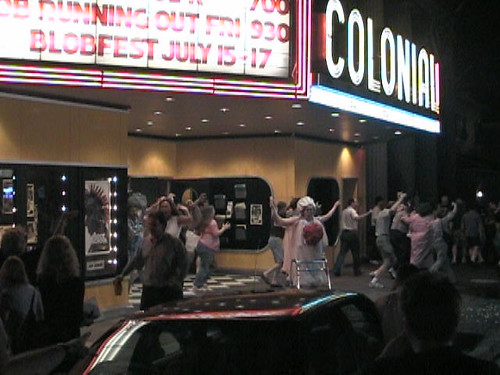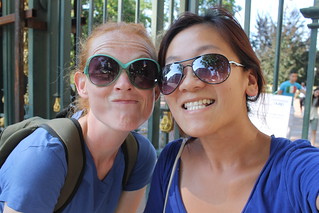Ack!
There were so many great comments on yesterday’s post about creativity and productivity for writers that I had a hard time choosing a winner.
And in the end I chose two (and am suffering horrible guilt about leaving out all the other people who wrote great comments).
But don’t fret, because you can all enter again to win another copy of Rory’s Story Cubes on the next post, which is all about how to work with an accountability buddy to make your writing life more productive than you ever dreamed.
This next giveaway will be a drawing out of a virtual hat (red), and you can get extra entries for posting about StoryADay in other places. See the Accountability / Writing Buddy post for more details.
Highlights from the creativity post comments
Thanks for all your great tips on creativity and productivity.
Brenda said,
1) Go someplace (a mall, a casino, etc.) and people-watch. I try to make up backstory for the people I see.
2) Listen to instrumental music. Classical and Drum music work well, as does the genre aptly called “Trance.”
3) I grab a box of cheap colored pencils and doodle. Sometimes the doodles end up being a creature, or a map of a fantasy land, or a character. I’m not an artist, by any means, but even my second-rate scribbles (lol) can cause a spark that becomes a story.
I think the reason that these 3 usually work for me is that they all have one thing in common: they make writing fun again.
Trina, in confessional-mode, spoke for many of us,
I say I have no time, but if I truly go back and look at how much time I spend on Twitter or surfing the Net, I have plenty of time. Guilty as charged.
MJ gave me a reason to stop feeling guilty for gossiping about strangers,
Myself and my boyfriend stole the idea of sitting in a restaurant and making up stories about the other diners from a movie we watched. It can be a lot of fun and generate a ton of ideas and helps with character development.
Janel had two great points,
I plan on pulling several prompts every night in May.
I’ve just decided that I will write to ease the stress instead of looking at the stress as a writing block.
Dominique’s suggestions were,
I overcome theses moments of writers block by keeping a pen and pencil around to writ down any great thought’s , plot ideas, or character lines. I also Take a trip to the bookstore to look through coffee table books full of images related to the subject I am writing
Steven made me feel a little less schizophrenic,
I was telling a friend about some story ideas I had mulling around in my head, she said that it must be busy “in there”. I told her that at times it seems like a cocktail party,…Once I get at least the outline of a guest’s story to paper, they tend to back off and let me relax.
Brandy is, like many of us, a list-maker and note-taker,
1. Keep paper and a pen/pencil everywhere; in the car, my purse, on tables, on window ledges, etc., because I never know when inspiration will strike and not having materials near me could kill or stall a great idea.
2. Install whiteboards with markers in different areas of the house and several larger ones in your office/studio. I have found that having a place where it is okay to write in an nontrational way helps me free my thoughts. ..Having a wall of white boards in the studio/office allows me to write “on the walls” which is something we have been trained not to do since childhood…
3. Write EVERYTHING down…My grocery lists end up with story ideas, character quotes, and settings along with the bananas and soup…
You can read all the comments in full here.
I have decided to award today’s prize to Brenda and Brandy, but thanks to everyone for taking the time to share your tips.
![]()








